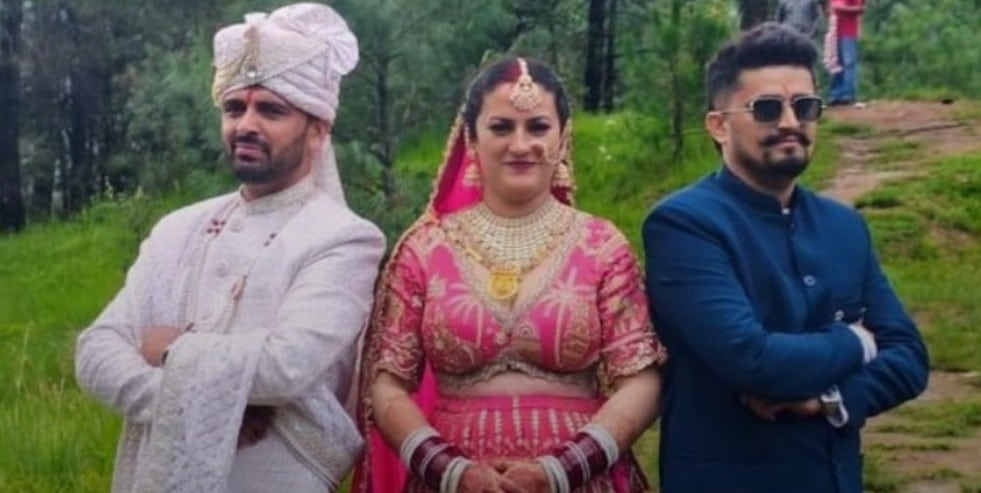In a rare cultural event, two brothers from India’s Hatti tribe in Himachal Pradesh married the same woman on July 12, 2025, reviving the ancient practice of polyandry known as Jodidara.
The three-day ceremony took place in Shillai village, located in the Sirmaur district, and attracted hundreds of attendees. The event featured traditional dances, folk music, and sacred rituals. Videos of the wedding went viral on social media, sparking discussions about the intersection of tradition and modernity.
Sunita Chauhan from Kunhat village is the bride, while the grooms are Pradeep Negi, a government employee, and his brother Kapil Negi. They emphasised the importance of mutual consent in their marriage. Sunita stated, “I was aware of this tradition and chose it willingly. I respect the bond we’ve formed.” Pradeep added, “We take pride in openly following our tradition.” Kapil, who lives away from home, remarked, “This marriage provides our wife with stability, support, and love as part of a united family.”
In Himachal’s Shillai village, a bride married two brothers, honouring the age-old polyandry tradition of the Hatti tribe. Amid folk songs, dances, and a three-day celebration, the trio tied the knot with full heart.
Full story inside 🔗 https://t.co/SesRLItOew pic.twitter.com/HPCg79CxuJ
— Hindustan Times (@htTweets) July 20, 2025Jodidara remains recognised under Himachal Pradesh’s revenue laws and is socially accepted in some areas, though it is rarely practised publicly. Five such marriages occurred in Badhana over a six-year period. Experts trace its origins to preventing land fragmentation, promoting brotherly unity, and ensuring family security in resource-scarce regions.
However, women’s property rights remain unresolved, and the tradition continues to face criticism for perpetuating gender inequality. Kundan Singh Shastri, general secretary of Kendriya Hatti Samiti, explained: “It helped prevent land fragmentation, promoted unity among brothers, even half-brothers, and ensured security through larger families.”
Gulf News described the event as a reminder that age-old, often controversial, traditions continue to exist. As societal norms evolve, these ceremonies emphasise cultural preservation amidst change.






